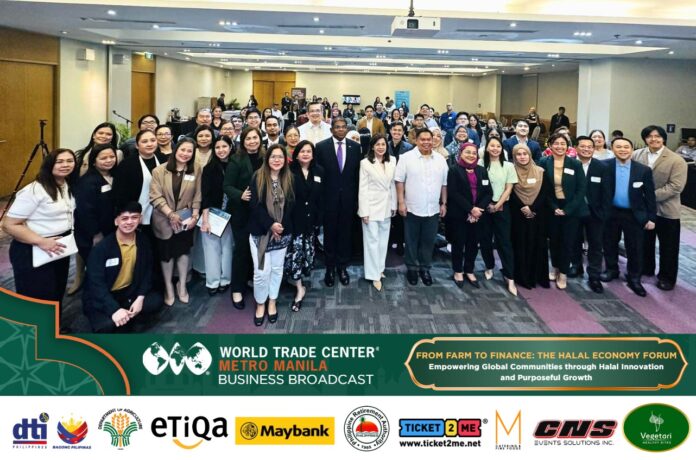The World Trade Center Metro Manila has hosted the Halal Economy Forum – From Farm to Finance, bringing together government officials, industry leaders, and entrepreneurs to highlight the country’s growing opportunities in the global halal market.
Speakers emphasized that Halal has evolved into a national development strategy, driven by rising domestic demand and strong export opportunities in the Middle East, Southeast Asia, Europe, and North America. With its agricultural strengths and strategic location, the Philippines aims to become a regional halal hub.
The morning sessions centered on halal food production, with SME success stories underscoring the value of certification. Agriculture undersecretary Zamzamin L. Ampatuan said Halal standards support food security and rural development, noting a ₱350-million halal poultry facility in Tarlac and a domestic Halal food market now exceeding ₱6.6 billion.
In the afternoon, discussions shifted to Islamic finance. The BSP explained how Islamic and conventional banking complement each other in supporting business growth. Malaysia’s Ambassador Dato’ Abdul Malik Melvin Castelinohighlighted Islamic finance as a proven, scalable model, while DTI’s Dr. Aleem Siddiqui M. Guiapal cited the Philippines’ $1-billion Sukuk issuance as a sign of investor confidence.
Panel sessions throughout the event offered guidance on certification, logistics, financing, and Takaful insurance, helping businesses navigate gaps in the Halal value chain.
The forum supports the goals of the Philippine Halal Industry Development Strategic Plan 2023–2028, which targets ₱230 billion in investments and 120,000 new jobs.
Supported by DTI, BSP, and private-sector partners, the event is part of WTCMM’s Business Broadcast series promoting trade education and industry collaboration.







